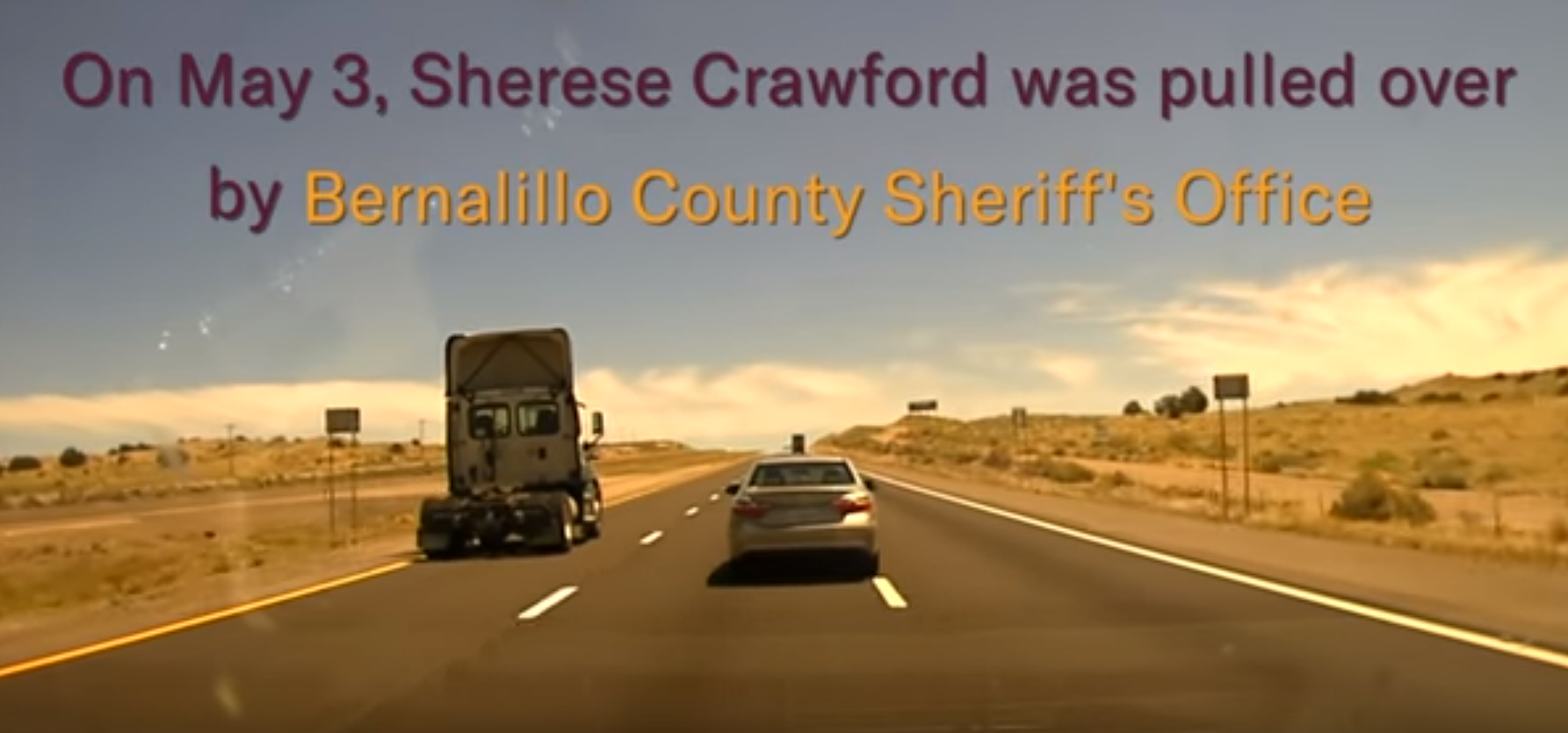By the third time Sherese Crawford got pulled over, she knew it was no matter of coincidence.
Crawford is a 38-year-old African-American Immigration and Customs Enforcement agent recently on temporary assignment in Albuquerque, New Mexico. As part of her work, she was regularly required to rent a car and drive a lonely stretch of I-40 to travel between the ICE field office in Albuquerque and Milan, New Mexico. Over the course of less than a month, she was pulled over three times by the Bernalillo County Sheriff’s Office — twice by the same deputy.
In none of these stops was she given a warning or citation. Her only crime: driving while black.
In none of these stops was she given a warning or citation. Her only crime: driving while black.
The first of the three incidents occurred on April 5, when Deputy Leonard Armijo pulled Crawford over, claiming that he had searched a database for her license plate number and the license plate came back as not on file, indicating that the vehicle might be stolen. This is a highly unlikely claim given that Crawford was driving a rental car provided by ICE.
When Crawford asked him in utter confusion, “What did I do?” Deputy Armijo forced her to exit the vehicle and walk with him to his patrol unit, where he scolded her for “giving him an attitude.” After this incident, Ms. Crawford contacted an ICE supervisor in Albuquerque to complain about the pretextual traffic stop, and the ICE supervisor advised her that the sheriff’s deputy had likely stopped her because she fit a profile: an African-American in a rental car.
That profile got her stopped two more times on April 15 and May 3 by Bernalillo County Deputy Patrick Rael. In the April 15 stop, Deputy Rael pulled her over for allegedly tailgating. When he examined Crawford’s license, he recognized her name and asked her if they had pulled her over the week before. He said he remembered Crawford’s name because an ICE officer and sheriff’s deputy present at the first stop had said that she had an “attitude.” Two weeks later, Deputy Rael pulled over Crawford for a third time alleging she was driving “too slow.”
These three incidents taken together clearly show that the Bernalillo County Sheriff’s Office has an unconstitutional policy of racially profiling African-Americans. For context, white and Hispanic ACLU of New Mexico staff have been driving the same stretch of road in rental cars for years without incident. It is impossible to imagine that these three stops in close succession with no warning or citation were motivated by anything other than Crawford’s race, especially given that Bernalillo County is overwhelmingly white and Hispanic with only three percent of the population reporting as Black or African-American.
Last week, the ACLU of New Mexico filed a lawsuit against the sheriff’s office alleging that they unlawfully and repeatedly stopped Crawford, a veteran federal law enforcement agent, because of her race. Targeting people because of the color of their skin isn’t just unconstitutional and wrong, it’s bad policing. This kind of biased-based policing destroys public trust in law enforcement and divides communities, making it harder for officers to do their jobs.
As one of the most diverse and multicultural states in the country, racial discrimination has no place in New Mexico, especially not in one of our state’s largest law enforcement agencies. We’re fighting to ensure that anytime you see flashing lights behind you in our state, you can feel confident that it was your lead foot — not the color of your skin — that’s getting you pulled over.
